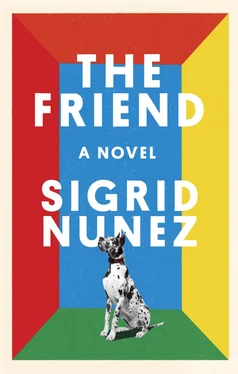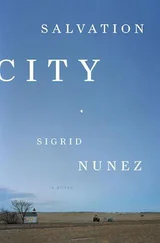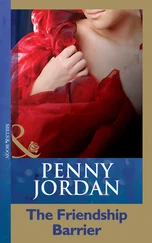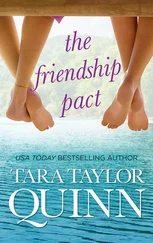“I was just thinking about the argument that men should stop writing altogether.”
“Alexievich doesn’t say that. But she does argue that if you want to get at the depths of human experience and emotions you need to let women speak.”
“But silence the writer herself.”
“Right. The goal is to have those who actually live the suffering also do the witnessing, with the writer’s role restricted to empowering them.”
“It’s become entrenched, hasn’t it. This idea that what writers do is essentially shameful and that we’re all somehow suspect characters. When I was teaching I noticed that, each year, my students’ opinion of writers seemed to have sunk a little lower. But what does it mean when people who want to be writers see writers in such a negative light? Can you imagine a dance student feeling that way about the New York City Ballet? Or young athletes despising Olympic champions?”
“No. But dancers and athletes aren’t seen as privileged, and writers are. To become a professional writer in our society you have to be privileged to begin with, and the feeling is that privileged people shouldn’t be writing anymore—not unless they can find a way not to write about themselves, because that only furthers the agenda of white supremacy and the patriarchy. You scoff, but you can’t deny that writing is an elitist, egotistic activity. You do it to get attention and to advance yourself in the world, you don’t do it to make the world a more just place. Of course there’s going to be some shame attached to it.”
“I like what Martin Amis said: deploring egotism in novelists is like deploring violence in boxers. There was a time when everyone understood this. And there was a time when young writers believed that writing was a vocation —like being a nun or a priest, as Edna O’Brien said. Remember?”
“Yes, as I also remember Elizabeth Bishop saying there’s nothing more embarrassing than being a poet. The problem of self-loathing isn’t new. What’s new is the idea that it’s the people with the history of greatest injustice who have the greatest right to be heard, and that the time has come for the arts not just to make room for them but to be dominated by them.”
“It’s kind of a double bind, though, isn’t it. The privileged shouldn’t write about themselves, because that furthers the agenda of the imperialist white patriarchy. But they also shouldn’t write about other groups, because that would be cultural appropriation.”
“That’s why I find Alexievich so interesting. If you’re going to put an oppressed group to literary use, you need to find a way to let them speak and keep yourself out of it. The reason people now cringe at the idea that you have to be gifted in order to write is that it leaves too many voices out. Alexievich makes it possible for people to be heard, to get their stories told, whether they can write beautiful sentences or not. Another suggestion is that if you write about an oppressed group you should donate your fee to some cause that helps them.”
“Which defeats the purpose if you need to make a living. In fact, under those rules, only the rich could afford to write whatever they wanted! Well, for me, the only serious question is whether Alexievich’s brand of nonfiction fiction produces work that’s as good as fiction fiction. I myself am inclined to agree with people like Doris Lessing, who thought imagination does the better job of getting at the truth. And I don’t buy this idea that fiction is no longer up to portraying reality. I’d say the problem lies elsewhere. That was another thing I noticed about the students: how self-righteous they’ve become, how intolerant they are of any weakness or flaw in a writer’s character. And I’m not talking about blatant racism or misogyny. I’m talking about any tiny sign of insensitivity or bias, any proof of psychological trouble, neurosis, narcissism, obsessiveness, bad habits—any eccentricity. If a writer didn’t come across as the kind of person they’d want to have for a friend, which invariably meant someone progressive and clean-living, fuck ’em. I once had an entire class agree that it didn’t matter how great a writer Nabokov was, a man like that—a snob and a pervert, as they saw him—shouldn’t be on anyone’s reading list. A novelist, like any good citizen, has to conform, and the idea that a person could write exactly what they wanted regardless of anyone else’s opinion was unthinkable to them. Of course literature can’t do its job in a culture like that. It upsets me how writing has become so politicized, but my students are more than okay with this. In fact, some of them want to be writers precisely because of this. And if you object to any of it, if you try talking to them about, say, art for art’s sake, they cover their ears, they accuse you of profsplaining. That’s why I’ve decided not to go back to teaching. Not to be too self-pitying, but when one is so at odds with the culture and its themes of the moment, what’s the point.”
And not to be too cruel, she doesn’t say, but you will not be missed.
“Anyway, I’m sorry you gave up on that piece,” he says. “You know I wanted you to finish it.”
“To be honest,” says the woman, “there was another reason. I got distracted. I started writing something else.”
“What about?”
“About you.”
“Me! How bizarre. What on earth made you decide to write about me?”
“Well, I didn’t exactly plan it. It was around Christmas, and I happened to watch that movie It’s a Wonderful Life. I’m sure you’ve seen it.”
“Many times.”
“And you know how it goes. Jimmy Stewart—George Bailey—is stopped from taking his own life by an angel who shows him what a great loss to the world it would’ve been had he never existed. I was sitting there watching with Jip—I had Jip in my lap—and of course I thought about you. I mean, I was always thinking about you after I heard what happened, wondering if you were going to be all right.” (Here the man’s gaze is again drawn to the flowers on the windowsill.) “I was thinking about what a close call it was. And I forgot all about the movie and started imagining what it would’ve been like if you hadn’t been stopped. After all, it was sheer luck—or maybe you have a guardian angel. In any case, I could not stop thinking about it. What if you hadn’t been found in time? And I knew that’s what I needed to be writing about.”
If the man was pale before, he is now as white as paper. “Am I hearing you right? Please say no.”
“I’m sorry,” the woman says. “I should have said that it’s fiction. I disguised everyone.”
“Oh, give me a break. You think I don’t know what that means? You changed my name. ”
“Actually, I didn’t use names. I unnamed everyone. Except for the dog.”
“Jip? Jip’s in it, too?”
“Well, not exactly Jip. There’s a dog. He’s an important character. And he has a name: Apollo.”
“Rather a grand name for a miniature dachshund, don’t you think?”
“He’s not a dachshund anymore. As I said, it’s fiction, everything’s different. Well, not everything. For example, I kept the detail about your finding him in the park. But you know how it works. You take some things from life, you make other things up, you tell a lot of half-lies and half-truths. So Jip becomes a Great Dane. And I made you an Englishman.”
The man groans. “Couldn’t you at least have made me Italian?”
The woman laughs. “Here’s what I learned from Christopher Isherwood about turning a real person into a fictional character. It’s like when you fall in love, he says. The fictional character is like the beloved: always extraordinary, never just another person. So you leave out the details about how that person is just like every other human being. Instead, you take what you find exciting or intriguing about them, the special things that made you want to write about them in the first place, and you exaggerate those. I know everyone wants to be Italian. But ever since I’ve known you you’ve always seemed like a Brit to me.”
Читать дальше












